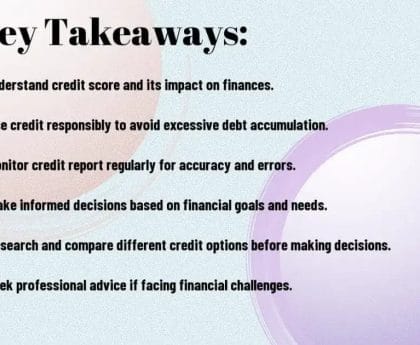Good credit scores can be a lifesaver for many people. They can open doors to new opportunities, such as lower interest on loans and higher limits on credit cards. But how do you know what is a good credit score in India? This article will help you understand the importance of having a good credit score in India and provide tips for maintaining one. We’ll take a look at what makes up a good credit score in India, how to check your CIBIL score, the benefits of having a good credit score, and more. So let’s dive into this important topic and explore how you can have the best chance of achieving financial success in India!
Definition of Credit Score
A credit score is a three-digit number that is used by lenders to evaluate the creditworthiness of an individual. It reflects your responsible credit behavior and gives lenders an indication of how likely you are to repay borrowed money.
Credit scores are based on the information in your credit report and are generated by credit bureaus or credit information companies. A good CIBIL report indicates that you have managed your accounts responsibly and are a responsible borrower. On the other hand, a low or poor CIBIL score suggests that you may not be able to repay loans in time or keep up with bills on time. The higher your CIBIL score, the better chance you have of being approved for loans or credit card applications at lower interest rates or higher limits.
Your CIBIL score is an important indicator of your financial health and creditworthiness, so it’s important to make sure you maintain a good score. Now that you know the basics of credit scores, let’s dive into what they mean in India and how to improve them.
Credit Scores in India
Credit scores in India are mainly generated by credit information companies, such as CIBIL, Experian, Equifax, and High Mark. A CIBIL score is the most widely accepted credit rating in India and it ranges from 300 to 900. Generally speaking, any score over 750 is considered to be an excellent credit score. If you have a score below 550,
It’s important to maintain a decent Credit score and pay your bills on time, as this will improve your chances of being eligible for better loan offers and even help you negotiate better terms on new purchases. To ensure you have an excellent credit score, you should also avoid taking out too many loans at once and set up a budget so you don’t overspend. Additionally, try not to go above your approved credit card limit and make sure all payments are made in full and on time each month.
-
Understanding Credit Scores in India
When it comes to maintaining a good credit score in India, it’s crucial to understand what it is and how it works. Simply put, a “credit score” is a numerical value that represents a borrower’s creditworthiness based on their credit history. In India, credit scores range from 300 to 900, with higher scores being indicative of a better credit profile. A good credit score is essential, as it signifies to lenders that you are a reliable borrower with a history of making timely repayments. This, in turn, improves your chances of being approved for loans, credit cards, and other forms of credit. A good credit score may also lead to lower interest rates and better terms for paying back loans. Understanding how credit scores work is the first step toward maintaining a good credit profile in India.
-
The Range of Credit Scores in India
Now that you understand credit scores in India, it’s important to know the range of scores. Credit scores in India typically range between 300 and 900, with 900 being the highest possible score. A score of 750 or above is considered a good credit score, indicating that you are a responsible borrower with a good track record of paying your payments on time.
If your score is below 700 then you have a bad credit score and, you may be considered a high-risk borrower. you may have difficulty getting approved for loans or credit cards.
Keep in mind that each lending institution has its own standards for credit scores, so it’s important to check with them directly to understand their requirements.
Factors such as payment history, credit utilization, length of credit history, and types of credit all play a role in determining your credit score in India.
Take steps to improve it by paying dues on time, reducing debt, and monitoring your credit report regularly.
-
The Significance of a Good Credit Score
Now that you understand the range of credit scores in India and what qualifies as a good score, it’s important to recognize the significance of a good credit score.
A good credit score can make all the difference when it comes to applying for loans, credit cards, mortgages, and other financial products. Lenders take a borrower’s credit score into consideration when determining their creditworthiness and the risk of lending them money. A good credit score can lead to lower interest rates, higher loan amounts, and better repayment terms.
On the flip side, a poor credit score can result in higher interest rates, lower loan amounts, and unfavorable repayment terms. So, if you want to be financially stable and successful in India, you need to keep a good credit score.
-
Ideal Credit Score for Lenders in India
As a borrower in India, it is important to know the ideal credit score for lenders. A decent credit score range falls in between 700–900, and an average credit score of 750 or above is considered excellent. For most lenders, a score of 750 to 800 should put you in the top 10%.
Having a higher credit score increases your chances of getting approved for a loan or credit application, with the added benefits of quicker approval and a low-interest rate on the credit facility. It is necessary to maintain a good credit score for loan approval at some banks and NBFCs. Remember, different credit bureaus may use different scoring models; therefore, it is imperative to check your credit score regularly and take steps to improve it if needed. By paying bills on time and avoiding credit card debt, you can maintain a good credit score and increase your chances of getting approved for the loan or credit application you need.
-
Factors that Affect Your Credit Score
Now that you understand the range and significance of credit scores in India, let’s take a closer look at the factors that affect it.
A number of different factors, including payment history, credit utilization ratio, credit inquiries, length of credit history, and credit mix influence your credit score.
Your score will go down if you pay late or don’t pay at all. Keeping your credit utilization ratio low by keeping a high limit-to-balance ratio can help you keep or improve your score.
Additionally, too many hard inquiries into your credit history can indicate a high level of risk, so it’s important to make loan requests only when necessary. As we have seen, monitoring and maintaining a good credit score is important for lenders to see you as a low-risk borrower, which ultimately helps you gain access to better credit options.
-
How to Check Your Credit Score in India
To check your credit score in India, you can reach out to any of the credit bureaus like CIBIL, Equifax, or Experian. People can check their credit health by getting credit reports and scores from these bureaus on a regular basis. You can request a free credit report from all of them once a year, but the credit score will require a subscription. Signing up for a monthly subscription will allow you to track your credit score more closely and receive regular updates on any changes to your credit profile.
It’s essential to keep an eye on your credit score as it influences your financial eligibility and can affect your chances of getting loan approval. Checking your credit report often will also let you know if there are any mistakes or mistakes that could be hurting your score. Keeping your credit score high requires consistent effort and attention, but with regular credit monitoring, you can access your score and improve it over time.
Benefits of Having a Good Credit Score in India
Your credit score is an important factor that lenders consider when assessing your creditworthiness. It shows that you are a responsible borrower and have a history of paying your bills on time. A high credit score can reduce the amount of interest you pay on loans, allow you to obtain lower interest rates on credit cards, and even qualify you for lower-cost car loans.
-
Applying for Loans and Credit Cards is Easier and Faster
Having a good credit score can make the process of applying for loans and credit cards much easier and faster. With a good credit score, lenders are more likely to approve your loan or credit card application quickly and with better terms, such as lower interest rates.
It means that you are a responsible borrower who has a repayment history of paying bills on time. An excellent score can reduce the amount of interest you pay on loans, allow you to obtain lower interest rates on credit cards, and even qualify you for lower-cost car loans.
-
Access To Lower Interest Rates On Loans & Credit Cards
Having a good credit score in India can offer access to lower interest rates on loans and credit cards. When evaluating loan applications or credit card applications, lenders consider an individual’s credit score as an indication of their ability to manage debts responsibly. With a good CIBIL Score, individuals can qualify for Pre-approved loan terms such as lower interest rates, higher loan amounts, and more relaxed repayment terms.
-
Availing of Higher Loan Amounts and Higher Limits on Credit Cards
Having a good credit score in India can help you access higher loan amounts and higher limits on credit cards. This can be beneficial for those who need to borrow larger sums of money or those who have high spending habits. Credit card issuers are likely to grant higher loan amounts with more flexible terms, as well as higher credit limits to individuals having a good CIBIL Score.
Improving Your Credit Score in India
Now that you understand what a good credit score is in India and its significance for lenders, it’s important to know how to improve it. Improving your credit score is a gradual process that requires consistent effort over time. Your credit score can go up if you pay back loans and credit card bills on time, keep your credit utilization ratio low, and don’t apply for multiple loans at the same time. Your credit score can also go up if you regularly check your credit report for mistakes and fix them right away. Remember, maintaining a good credit score in India is important not just for availing loans and credit, but also for other financial transactions like renting a house or getting a new job. So, it’s worth the effort to improve and maintain a good credit score.
-
Pay Bills On Time and Monitor Account Regularly
One of the most important strategies for maintaining a good credit score in India is to pay bills on time and monitor your account regularly. You can significantly improve your credit scores by paying bills on time, as late payments negatively reflect in your credit history. To ensure timely payments, you can set up automatic bill payments or reminders to alert you when bills are due. Additionally, monitoring your accounts regularly helps you identify discrepancies in the credit report and take action to correct them if necessary.
-
Avoid Making Multiple Applications For Loans/Credit Cards Keep Your Total Debt as Low As Possible
Avoid making multiple applications for loans or credit cards. Lenders may see multiple applications as a sign that you are not capable of managing your finances responsibly. If you already have a loan or credit card, make sure to keep your total debt low as possible. Improving your score and making it easier to get approval for future loans and credit cards is possible by following this practice.
-
Improve Your Debt Mix By Taking Different Types Of Loan Products
One of the best ways to improve your credit score is to diversify your debt mix by taking different types of loan products. Having a healthy balance between secured and unsecured loans, credit cards, and even personal loans can help demonstrate that you are a responsible borrower. Secured loans such as home loans or car loans require collateral while unsecured loans like credit cards or personal loans do not require any form of security.
In order to maintain an excellent credit score, it is important to ensure that you keep your total debt low. Keeping track of your credit card bills and other payments is key in order to staying on top of repayments and avoid missing any deadlines. Additionally, try not to exceed the set limit for each type of loan product – this will prevent you from overspending which could negatively impact your score.
Finally, keep in mind that the amount of time it takes for you to improve your score varies depending on how often you use different types of loan products responsibly. Increasing the diversity of your debt mix over time improves the chances of getting approval for low-interest rates while applying for different financial products.
Credit Score Myths vs Facts
It is crucial to separate myths from facts when it comes to civil scores in India. Some people believe that checking their own credit score can negatively affect it, while others think that their income is a factor in determining their credit score. These misconceptions are not true, and checking your score regularly can actually help you identify if there are errors on your report that could be affecting your score. The reality is that factors such as payment history, credit utilization, and credit history length have a more significant impact on your credit score than your income or how often you check it. By learning the truth about credit score myths and taking steps to improve your credit history, you can maintain and even increase your score over time.
Importance of Checking Your Credit Report Regularly
Checking your credit report regularly is an important step in maintaining a good credit score. It lets you keep track of what you are doing with your money and see if it is helping or hurting your credit. If your credit history or personal information has any mistakes or discrepancies, you can take the right steps to fix them and keep them from hurting your credit score. Also, checking your credit report regularly lets you know about any outstanding debts or delinquencies that you may need to take care of, so you can lessen the effect they have on your credit score. To maintain a good credit score, which is essential for securing loans and credit in India, you should regularly check your credit report to better equip yourself.
Conclusion: Maintaining a Good Credit Score in India
Now that you understand the importance of having a good credit score in India, it’s crucial to maintain it. Having a good credit score not only increases the approval chances of loans and credit cards, but it also helps in securing better interest rates and terms. To maintain a good credit score, you should strive to pay your bills on time, minimize your credit utilization, and check your credit report regularly to detect and correct any errors. By being responsible with your credit, you can build a solid credit history and establish yourself as a reliable borrower according to lenders. Remember that your credit score is constantly changing, so it’s essential to keep track of it and take the necessary measures to improve it if it dips. Overall, by following these tips and maintaining a good credit score, you can achieve your financial goals and secure a brighter future.





